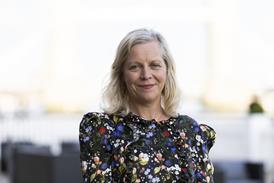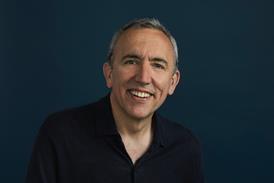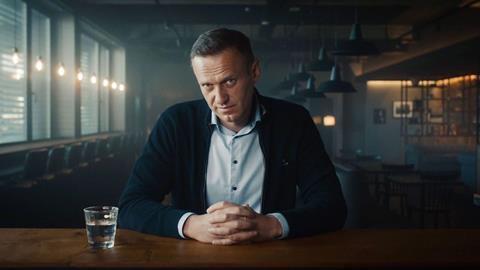Odessa Rae says SVoDs have ‘responsibility’ to invest in documentary and widen audiences’ viewpoints
Academy Award-winning documentary producer Odessa Rae has hit out at streamers for relying on commercial, algorithm-led shows and urged them to reverse a “total shut down” on political output.
Rae became a global figure following the 2022 release of Navalny, the film about the Russian dissident Alexei Navalny, documenting the politician’s poisoning two years earlier and the subsequent investigation into who was behind it. The doc won the 2023 best documentary feature Oscar.
Picked up by HBO Max and CNN Films, it went on to become a global hit at a time when streamers scoured events such as Sundance Film Festival and paid tens of millions of dollars for the latest projects. Spending has since plunged, however, leaving filmmakers with few financing options.
“The streamers built their platforms with shows like Navalny and The Square (2013) back in the day, shows which take risks and win awards and that challenge the viewer,” she told Broadcast in an exclusive interview at MIA (Mercato Internazionale Audiovisivo) in Rome. “Now they have an algorithm that suggests they can keep their base happy and not push the limits.
“We really need more people and entities to do that – Mubi is doing a pretty good job, but the streamers have just totally shut down. They just know what their algorithm is.”
Political aversion
Rae, whose team on Navalny included director Daniel Roher and producer Shane Boris, said the pull-back in spending – and an aversion to anything deemed politically sensitive – had hit filmmakers hard.
“Everything is difficult right now and especially political content – anything not commercial or anything that doesn’t fit the algorithm.
“Some of them also have huge tech businesses behind them – most of them, from Apple to Amazon. They are concerned about expanding and politics has become so sensitive in the past few years.
“We used to discuss these things – you might be a Democrat and I’d be a Republican, but everything would be fine, now there’s a red line between the two.”

Rae has recently worked on Hollywoodgate, about the US withdrawal from Afghanistan. She said that the streamers have “a responsibility” to support the genre and develop audiences.
“The streamers have to challenge themselves to open up and take films that wouldn’t necessarily reach 10m people on their platforms but might reach three or four million in a different way.
“They’ll say something like Hollywoodgate or other small films like that, which don’t really fit any genre, don’t have an audience. But it is their responsibility to create that audience, not just get smaller and smaller with the audience that you have. They have huge platforms and a huge role to help creativity flourish and not to squelch it.”
Rae admitted the lack of appetite from streamers is “depressing” but added she believes the industry is in a “birthing period” as new distribution methods emerge.
“Several people I know are creating new ways to distribute docs and there will be new platforms, there’ll be new ideas like Jolt. We are putting Hollywoodgate on there in the US, it’s a way to stream it and they’re taking a lot of films that are not getting the typical streamer buy in.”
Zucker support
While Navalny went on to become a global hit, Rae admitted that the project was “intense” as costs rose without a buyer attached. At one point, she had almost $80,000 of debt on her credit card, with journalist Christo Grozev even more indebted.
But the support of CNN Films ensured the doc’s future following three months filming Navalny off their own backs in the Black Forest.
“Alexi was going back to Russia in the next few days. There was one other producer we wanted and that was Shane Boris and he then introduced us to Diane Becker, who set a meeting with CNN Films,” she said.
“They’d been following the news. Clarissa Ward had come to the Black Forest and done an interview with Alexei – that was CNN - and [former CNN president] Jeff Zucker at that point was very engaged in Navalny’s story, so they knew the story.
“They greenlit in 24 hours. We didn’t shop it around.
“They gave us a budget which was bigger than they had ever greenlit on any documentary – I can’t tell you the amount, but it was sufficient to get us paid back and the machine going. Three days later, Alexei went back to Russia.”






























No comments yet